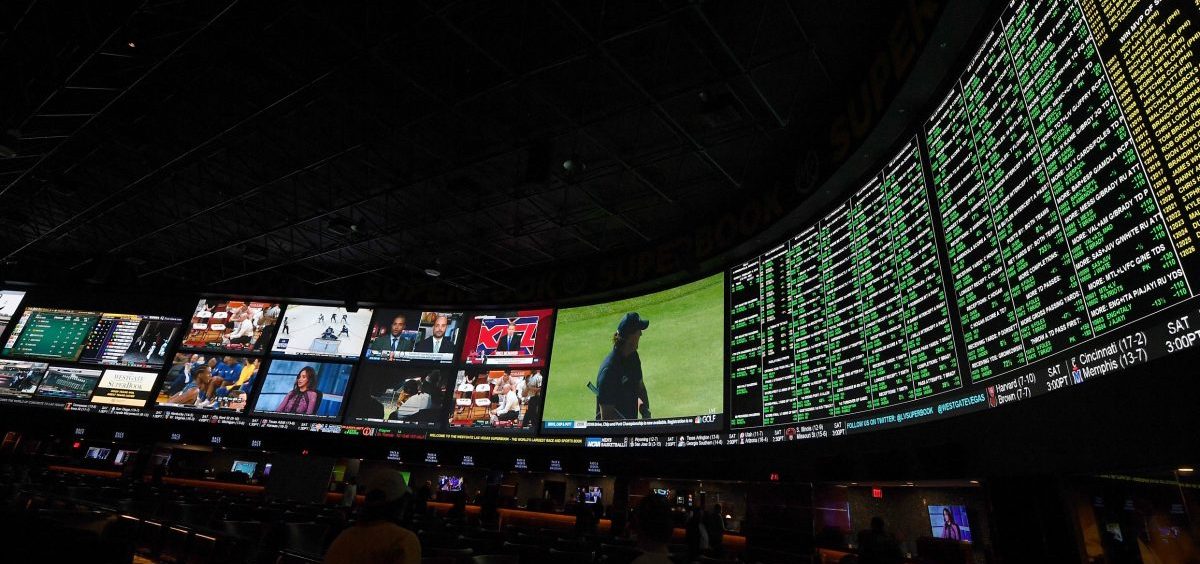News

Supreme Court Rules States Are Free To Legalize Sports Betting
By: Camila Domonoske | Colin Dwyer | Domenico Montanaro | NPR
Posted on:
Updated 11:09 a.m. ET
The Supreme Court has struck down a 1992 federal law that effectively prevented most states from legalizing sports betting, clearing up a legal gray area and opening a door for state governments to join in what has become a lucrative industry.
“Congress can regulate sports gambling directly, but if it elects not to do so, each State is free to act on its own,” the court wrote in a decision released Monday.
The law known as the Professional and Amateur Sports Protection Act, passed in 1992, prohibited sports betting, except in four states where it had already been legalized — Nevada, Delaware, Montana and Oregon. It gave the other states one year to legalize such betting, if they wanted to.
It was a busy day at the Supreme Court. It also handed down decisions on two other important cases, dealing with personal rights. They were:
Byrd v. US: The court unanimously agreed with the driver of a rental car who said he had his privacy rights violated by police during a traffic stop in Pennsylvania. Police found dozens of bricks of heroin and body armor in his trunk after discovering a warrant for his arrest in New Jersey. The man said he did not consent to a search, but police argued that his consent didn’t matter because his name was not ono the rental agreement. The Supreme Court disagreed and held that the man still maintained a reasonable expectation of privacy.
McCoy v. LA: The court ruled, by a 6-3 margin, in favor of an inmate who wanted to plead not guilty to a capital offense. His lawyer wanted him to plead guilty to avoid the death penalty. The court said, “Guaranteeing a defendant the right ‘to have the ASSISTANCE of Counsel for HIS defence,’ the Sixth Amendment so demands. With individual liberty–and, in capital cases, life– at stake, it is the defendant’s prerogative, not counsel’s, to decide on the objective of his defense: to admit guilt in the hope of gaining mercy at the sentencing stage, or to maintain his innocence, leaving it to the State to prove his guilt beyond a reasonable doubt.”
History of the sports-gambling law and the potential impact of the court’s ruling
The law was sponsored by senator and former basketball star Bill Bradley, as NPR’s Nina Totenberg explained in December:
“In an NPR interview, Bradley said his motivation was simple, and personal. ‘Betting on sports was betting on human beings, and I thought that was wrong,’ he explained. ‘It turns players into roulette chips. It makes the game, which is a game of high-level competition and excellence, into slot machines, and I don’t think that should be what we do in this country.’
“Bradley said there was virtually no congressional opposition to his bill back in 1992. Though Bradley added that Donald Trump, with failing investments in Atlantic City casinos, lobbied against it, believing that sports betting was the answer to his financial problems there.
“After the bill passed, New Jersey did not seek to legalize gambling in its one-year window of opportunity.
“That was then, and this is now, however.
“Now the American Gaming Association estimates that illegal sports betting has grown to $150-billion-a-year market. And cash-starved states are salivating at the thought of raising billions from legalizing and licensing that activity, not to mention taxing the proceeds.”
While Bradley’s objection to sports betting was one of personal principles, the Supreme Court case has nothing to do with the merits or morality of betting on sports. The question was whether the Bradley law, through the way it was written, commandeers state governments to enforce federal policy.
The law does not itself ban sports betting. Instead it prevents states from legalizing sports betting.
Lawyers for New Jersey argued that the law forces state governments to enforce a federal initiative, which the Supreme Court has repeatedly ruled is unconstitutional.
Lawyers for the sports leagues said that the federal law is not forcing states to do anything, but rather telling them what not to do, which wouldn’t violate the Constitution.
As Nina reported after oral arguments in December, a majority of the justices appeared to have “serious doubts” about the constitutionality of the law.
And on Monday, they put those doubts in writing.
“Our job is to interpret the law Congress has enacted and decide whether it is consistent with the Constitution,” the court said in its decision. “PASPA is not.”
America has seen a cultural shift on the question of sports gambling. NPR’s Uri Berliner reported in 2015 that ESPN has been increasing its coverage of gambling by, for instance, directly referencing the point spread set by oddsmakers.
And while the major U.S. pro and college sports leagues have “always sought to distance themselves completely from gambling,” as Uri put it, NBA Commission Adam Silver came out in favor of legalizing (and regulating) sports betting in 2014.
Then there’s the popularity of daily fantasy sports — an industry that has weathered legal challenges of its own. Fantasy sports leagues amount to “thinly veiled gambling,” as ESPN’s Rob King told Uri, and have helped push sports betting into the mainstream.
Meanwhile, the sports betting decision could have implications for a wide range of other state laws — including those legalizing marijuana, Nina noted. Amy Howe, writing for SCOTUSblog, suggests state laws decriminalizing physician-assisted suicide and self-driving cars could also be affected.
9(MDI4ODU1ODA1MDE0ODA3MTMyMDY2MTJiNQ000))

